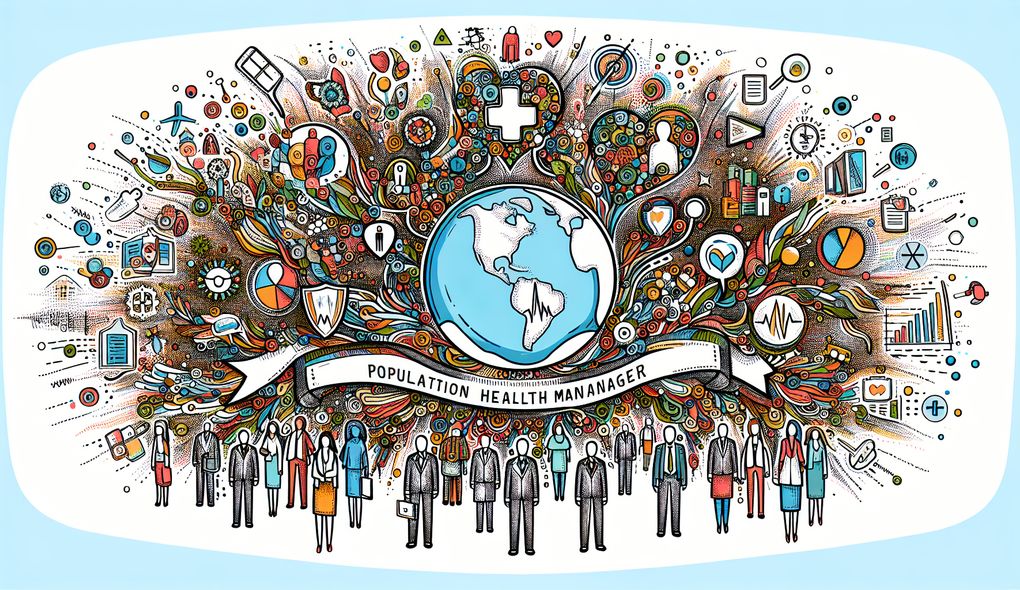Describe your experience with data analysis and interpretation of public health statistics.
INTERMEDIATE LEVEL

Sample answer to the question:
I have experience with data analysis and interpretation of public health statistics. In my previous role as a public health analyst, I was responsible for collecting and analyzing health data from various sources, including vital statistics, surveys, and electronic health records. I used statistical software to clean and organize the data, and then conducted in-depth analysis to identify trends and patterns. I also interpreted the findings and created reports to communicate the results to stakeholders. This experience allowed me to develop strong analytical and problem-solving skills, as well as a deep understanding of public health concepts.
Here is a more solid answer:
In my previous role as a public health analyst, I have extensive experience with data analysis and interpretation of public health statistics. I was responsible for managing large datasets, including vital statistics, surveys, and electronic health records. I used statistical software such as R and Python to clean, organize, and analyze the data. I applied various statistical techniques, such as regression analysis and hypothesis testing, to identify patterns and relationships in the data. I also conducted geospatial analysis to visualize and understand the distribution of health outcomes across different populations. Additionally, I collaborated with healthcare professionals and community stakeholders to interpret the findings and develop evidence-based interventions. Through this experience, I have developed strong analytical and problem-solving abilities, as well as excellent communication and interpersonal skills.
Why is this a more solid answer?
The solid answer provides more specific details about the candidate's experience with data analysis and interpretation of public health statistics. It mentions the types of data the candidate worked with and the statistical software used for analysis. It also highlights the statistical techniques and geospatial analysis the candidate performed. Additionally, it mentions collaboration with healthcare professionals and community stakeholders to interpret the findings and develop interventions. However, the answer could still be improved by addressing the other skills mentioned in the job description, such as proficiency in health information technology and data management tools.
An example of a exceptional answer:
In my previous role as a public health analyst, I gained extensive experience and expertise in data analysis and interpretation of public health statistics. I managed large and complex datasets, including vital statistics, surveys, electronic health records, and administrative data. I utilized advanced statistical software, such as SAS and SPSS, to clean, organize, and analyze the data. I implemented various statistical modeling techniques, including multivariable regression analysis, time series analysis, and cluster analysis, to uncover meaningful insights and trends. Moreover, I conducted geospatial analysis using GIS mapping tools to visualize the distribution of health outcomes across different geographical areas. One of my key accomplishments was developing a predictive model to identify individuals at high risk of developing chronic diseases based on demographic, socioeconomic, and behavioral factors. This model helped targeted interventions and resource allocation to the most vulnerable populations. I collaborated closely with healthcare professionals, data scientists, and community stakeholders to interpret the findings and translate them into actionable recommendations. Through this collaboration, I honed my excellent communication and interpersonal skills, as well as my ability to lead and motivate interdisciplinary teams. Overall, my experience in data analysis and interpretation of public health statistics has provided me with a strong foundation in analytical, problem-solving, and strategic thinking skills required for the Population Health Manager role.
Why is this an exceptional answer?
The exceptional answer provides detailed and comprehensive information about the candidate's experience with data analysis and interpretation of public health statistics. It covers various aspects such as the types of datasets managed, the advanced statistical software used, and the specific statistical modeling techniques employed. It also highlights a significant accomplishment of developing a predictive model for identifying individuals at high risk of chronic diseases. The answer demonstrates strong analytical, problem-solving, and strategic thinking abilities, as well as leadership and collaboration skills. However, it could still be improved by addressing the other skills mentioned in the job description, such as proficiency in health information technology and data management tools.
How to prepare for this question:
- Review the fundamentals of data analysis, statistical techniques, and data management.
- Familiarize yourself with different types of public health datasets and the challenges associated with them.
- Practice using statistical software and become proficient in commonly used tools such as R or Python.
- Stay updated with the latest research and best practices in public health data analysis and interpretation.
- Prepare examples and case studies from your previous experience to demonstrate your analytical and problem-solving abilities.
What are interviewers evaluating with this question?
- Analytical and problem-solving abilities
- Communication and interpersonal skills

